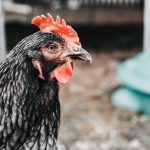Birds roosting in undesired locations can present various challenges for property owners and managers. Common roosting sites include rooftops, balconies, ledges, and other architectural features. The primary concerns associated with bird roosting are:
1.
Sanitation: Bird droppings can accumulate, creating unsightly and unhygienic conditions. 2. Health risks: Avian feces may harbor pathogens and parasites, potentially posing health hazards to humans.
3. Property damage: Birds’ nesting activities can cause structural issues, particularly in gutters, vents, and other building components. 4.
Fire hazards: Nesting materials in vents or electrical equipment can increase fire risk. 5. Agricultural impact: In rural settings, roosting birds may damage crops and compromise food safety standards.
6. Noise pollution: Large numbers of roosting birds can create significant noise disturbances. 7.
Corrosion: Bird droppings are acidic and can corrode building materials over time. 8. Slip hazards: Accumulated droppings on walkways can create dangerous conditions for pedestrians.
Understanding these issues is crucial for developing effective bird control strategies and maintaining safe, clean environments in both urban and rural areas.
Table of Contents
Key Takeaways
- Understanding the Problem: Identifying the specific bird species causing issues and their behavior patterns is crucial for effective bird control.
- Creating Physical Barriers: Installing physical barriers such as netting, spikes, or screens can prevent birds from roosting and nesting in unwanted areas.
- Using Scare Tactics: Utilizing visual deterrents, sound devices, or predator decoys can effectively scare birds away from problem areas.
- Providing Alternative Roosting Spots: Offering alternative roosting sites such as birdhouses or designated perching areas can redirect birds to more suitable locations.
- Implementing Repellents: Using bird repellents such as gels, sprays, or taste aversions can discourage birds from landing and roosting in specific areas.
- Keeping the Area Clean: Regularly cleaning up food sources, nesting materials, and debris can help deter birds from frequenting an area.
- Seeking Professional Help: When all else fails, consulting with a professional bird control service can provide expert solutions for long-term bird management.
Creating Physical Barriers
Physical Barriers: A Humane Solution
One effective way to deter birds from roosting in unwanted areas is to create physical barriers that prevent them from accessing these spaces. This can be done by installing bird spikes, netting, or wire mesh on ledges, rooftops, and other areas where birds tend to roost.
Bird Spikes: A Durable and Effective Option
Bird spikes are a humane and effective way to prevent birds from landing and roosting on surfaces. They are made of durable materials such as stainless steel or plastic and are designed to make it uncomfortable for birds to land on them.
Netting and Wire Mesh: Additional Barriers
Another physical barrier that can be used to deter birds is netting. Netting can be installed over large areas to prevent birds from accessing rooftops, balconies, and other spaces where they may roost. It is important to ensure that the netting is properly installed and maintained to be effective in deterring birds. Additionally, wire mesh can be used to block off openings and vents where birds may enter and roost.
Maintaining a Clean and Sanitary Environment
Creating physical barriers is an effective way to prevent birds from roosting in unwanted areas and can help to maintain a clean and sanitary environment.
Using Scare Tactics

Scare tactics can also be used to deter birds from roosting in unwanted areas. One common scare tactic is the use of visual deterrents such as reflective tape, balloons, or predator decoys. These visual deterrents can create a sense of danger for birds and discourage them from roosting in the area.
Reflective tape can be hung in areas where birds tend to roost, and the movement and reflection of light can startle and deter them. Balloons with reflective surfaces or predator eyes painted on them can also be effective in scaring off birds. Another scare tactic that can be used is the use of sound deterrents.
Devices that emit sounds that are unpleasant for birds, such as distress calls or predator noises, can be effective in deterring them from roosting in unwanted areas. These devices can be programmed to emit sounds at regular intervals to create a sense of danger for birds and discourage them from roosting in the area. Using scare tactics is a humane and effective way to deter birds from roosting in unwanted areas and can help to maintain a clean and sanitary environment.
Providing Alternative Roosting Spots
One way to address the issue of birds roosting in unwanted areas is to provide alternative roosting spots for them. By providing alternative roosting spots, such as birdhouses or nesting platforms, you can encourage birds to roost in designated areas rather than in unwanted spaces. Birdhouses can be installed in outdoor spaces to provide shelter and nesting opportunities for birds.
They should be placed in areas where birds are likely to roost, such as near trees or shrubs. Nesting platforms can also be installed on rooftops or other structures to provide a designated roosting spot for birds. These platforms should be designed to accommodate the specific needs of the bird species in the area and should be placed in areas where birds are likely to roost.
By providing alternative roosting spots for birds, you can help to redirect their behavior and discourage them from roosting in unwanted areas. This approach is a proactive and humane way to address the issue of birds roosting in unwanted spaces.
Implementing Repellents
Another effective way to deter birds from roosting in unwanted areas is to implement repellents that make these spaces unappealing to them. There are various types of bird repellents available, including chemical repellents, taste aversions, and visual repellents. Chemical repellents are designed to create an unpleasant scent or taste for birds, which discourages them from roosting in the area.
These repellents can be applied to surfaces where birds tend to roost, such as ledges or rooftops. Taste aversions are another type of bird repellent that can be used to deter birds from roosting in unwanted areas. These aversions are designed to create an unpleasant taste for birds when they come into contact with treated surfaces.
Visual repellents, such as reflective surfaces or predator decoys, can also be effective in deterring birds from roosting in unwanted areas. Implementing repellents is an effective way to discourage birds from roosting in unwanted spaces and can help to maintain a clean and sanitary environment.
Keeping the Area Clean

Removing Food Sources
Birds are attracted to areas with food sources and nesting materials, so keeping these areas clean and free of debris can help to discourage them from roosting there. Regularly cleaning up food scraps, spilled birdseed, and other potential food sources can help to make the area less attractive to birds.
Eliminating Nesting Materials
Removing nesting materials such as twigs, leaves, and feathers can help to discourage birds from building nests in unwanted areas. It is also important to keep garbage bins tightly sealed and regularly emptied to prevent birds from scavenging for food in the area.
Maintaining a Clean Environment
By keeping the area clean and free of potential food sources and nesting materials, you can help to deter birds from roosting in unwanted spaces. This approach is a proactive way to address the issue of birds roosting in unwanted areas and can help to maintain a clean and sanitary environment.
Seeking Professional Help
If the problem of birds roosting in unwanted areas persists despite implementing various deterrent methods, it may be necessary to seek professional help. Pest control professionals have the knowledge and expertise to assess the situation and recommend effective solutions for deterring birds from roosting in unwanted spaces. They can provide guidance on the most appropriate deterrent methods for the specific bird species and the area where they are roosting.
Professional pest control services may also offer more advanced deterrent methods, such as bird exclusion systems or bird trapping and relocation services. These services are designed to effectively address the issue of birds roosting in unwanted areas while ensuring the humane treatment of the birds. Seeking professional help is a proactive approach to addressing the problem of birds roosting in unwanted spaces and can help to maintain a clean and sanitary environment.
In conclusion, addressing the issue of birds roosting in unwanted areas requires a comprehensive approach that includes understanding the problem, creating physical barriers, using scare tactics, providing alternative roosting spots, implementing repellents, keeping the area clean, and seeking professional help when necessary. By taking proactive measures to deter birds from roosting in unwanted spaces, you can maintain a clean and sanitary environment while ensuring the humane treatment of the birds.
If you’re looking for more tips on keeping chickens, you might be interested in learning about what to feed ducks. Check out this article for helpful information on how to properly feed and care for ducks.
FAQs
What are some effective ways to keep chickens off your car?
Some effective ways to keep chickens off your car include using physical barriers such as chicken wire or fencing, using repellents such as citrus or vinegar sprays, and providing alternative roosting spots for the chickens.
Why do chickens like to roost on cars?
Chickens like to roost on cars because they provide a high vantage point, warmth, and shelter from predators. Additionally, the smooth surface of cars can be appealing to chickens for roosting.
Are there any risks associated with chickens roosting on cars?
Yes, there are risks associated with chickens roosting on cars. Their droppings can damage the car’s paint and cause corrosion. Additionally, the weight of the chickens can dent the car’s surface.
How can I protect my car from chicken droppings?
To protect your car from chicken droppings, you can regularly wash and wax your car to create a protective barrier. You can also use a car cover to prevent direct contact with the droppings.
Is it legal to harm or kill chickens that roost on my car?
It is important to check local laws and regulations regarding the treatment of chickens. In many areas, harming or killing chickens may be considered animal cruelty and is illegal. It is best to use humane methods to deter chickens from roosting on your car.
Meet Walter, the feathered-friend fanatic of Florida! Nestled in the sunshine state, Walter struts through life with his feathered companions, clucking his way to happiness. With a coop that’s fancier than a five-star hotel, he’s the Don Juan of the chicken world. When he’s not teaching his hens to do the cha-cha, you’ll find him in a heated debate with his prized rooster, Sir Clucks-a-Lot. Walter’s poultry passion is no yolk; he’s the sunny-side-up guy you never knew you needed in your flock of friends!







